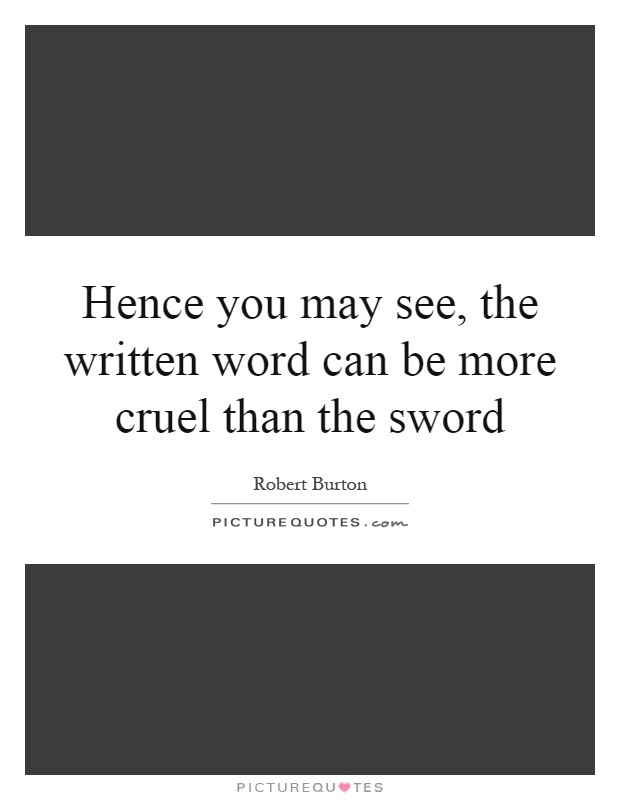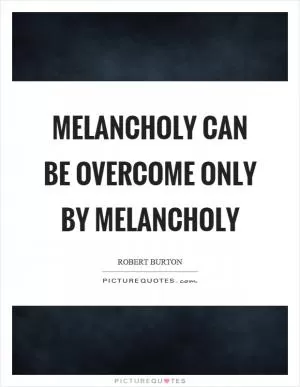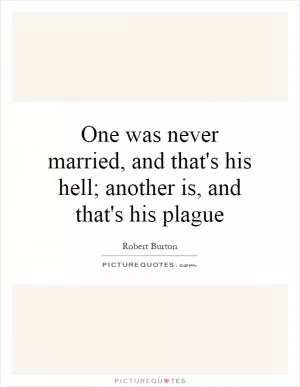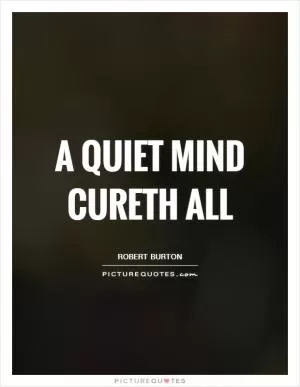Hence you may see, the written word can be more cruel than the sword

Hence you may see, the written word can be more cruel than the sword
Robert Burton, a 17th-century English scholar and writer, is best known for his work "The Anatomy of Melancholy." In this extensive and complex work, Burton delves into the various causes and manifestations of melancholy, a condition that was often associated with depression and anxiety in his time. Throughout his writing, Burton explores the power of words and language, and how they can have a profound impact on the human psyche.One of Burton's most famous quotes is, "Hence you may see, the written word can be more cruel than the sword." This statement speaks to the idea that words have the power to inflict deep emotional wounds and lasting harm on individuals. In the context of Burton's work, this quote can be interpreted as a warning about the dangers of negative or hurtful language, and the potential for words to cause great suffering.
Burton was acutely aware of the power of language and the ways in which it could be used to manipulate and control others. In "The Anatomy of Melancholy," he explores the ways in which words can be used to deceive, manipulate, and harm individuals. He also examines the ways in which language can be used to express deep emotions and connect with others on a profound level.












 Friendship Quotes
Friendship Quotes Love Quotes
Love Quotes Life Quotes
Life Quotes Funny Quotes
Funny Quotes Motivational Quotes
Motivational Quotes Inspirational Quotes
Inspirational Quotes